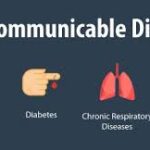Vitamin D and Immune Health in Africans

Vitamin D is often called the “sunshine vitamin”, yet millions of Africans are deficient despite abundant sunlight across the continent. This paradox poses a serious challenge to public health because vitamin D is essential not only for bone strength but also for a strong immune system.
In Africa, where infectious diseases like tuberculosis, malaria, and respiratory illnesses remain major threats, vitamin D deficiency increases vulnerability and worsens health outcomes. This article explores the role of vitamin D in immunity, why deficiency is common in Africa, and how supplementation can help.
The Link Between Vitamin D and Immunity
Vitamin D plays a crucial role in the body’s defense system:
-
Activates immune cells – It helps T-cells and macrophages identify and destroy harmful pathogens.
-
Reduces inflammation – Balances immune responses, preventing chronic inflammation.
-
Supports respiratory health – Adequate vitamin D levels reduce the risk of respiratory infections like pneumonia and flu.
-
Boosts vaccine response – Research suggests vitamin D enhances the effectiveness of vaccines.
Why Vitamin D Deficiency is Widespread in Africa
Despite abundant sunshine, several factors explain why many Africans remain deficient:
-
Urban lifestyles – More people work indoors and spend less time outside.
-
Clothing styles – Covering most of the skin reduces sun exposure.
-
Dark skin pigmentation – Melanin lowers the skin’s ability to produce vitamin D.
-
Poor dietary intake – Diets often lack vitamin D-rich foods such as oily fish, fortified dairy, and eggs.
-
Health conditions – Malnutrition, obesity, and liver or kidney disease can limit vitamin D absorption and processing.
Health Risks of Vitamin D Deficiency
-
Frequent infections such as colds, flu, and tuberculosis.
-
Bone weakness leading to rickets in children and osteoporosis in adults.
-
Chronic fatigue and muscle pain.
-
Increased risk of autoimmune diseases like type 1 diabetes and multiple sclerosis.
-
Slower recovery from common illnesses.
Can Supplements Help?
Vitamin D supplements are a safe and effective way to restore healthy levels, especially for at-risk groups.
Benefits of Vitamin D Supplements
-
Strengthen the immune system against infections.
-
Lower the risk of respiratory illnesses.
-
Support recovery from chronic diseases.
-
Improve overall energy and wellbeing.
Who Needs Them Most?
-
Children and infants – to prevent rickets.
-
Pregnant and breastfeeding women – for maternal and child health.
-
Elderly adults – with weaker immune systems.
-
Urban dwellers – who have limited sun exposure.
Safe Supplementation Guidelines
-
Check vitamin D levels before long-term supplementation.
-
Follow recommended doses – generally 600–1000 IU daily for adults unless prescribed otherwise.
-
Combine with diet and sunlight for natural balance.
-
Avoid overdose – excessive intake can cause kidney problems and high calcium levels.
A Balanced Approach to Immune Health
While supplements are helpful, they should be part of a holistic health strategy:
-
Spend 15–30 minutes daily in safe sunlight.
-
Eat vitamin D-rich foods like salmon, mackerel, eggs, and fortified milk.
-
Maintain a healthy lifestyle with exercise, sleep, and hydration.
Conclusion
Vitamin D deficiency is a silent but serious health issue in Africa, leaving millions vulnerable to infections and weakened immunity. Despite the continent’s abundant sunshine, lifestyle changes, skin pigmentation, and poor diets increase the risk.
Supplements offer a practical solution, especially for children, women, and urban populations, but safe use under medical guidance is essential. By combining supplementation with healthy living and adequate sunlight, Africans can build stronger immune systems and healthier lives.
Written by Fawzi Rufai, Medically Reviewed by Sesan Kareem



